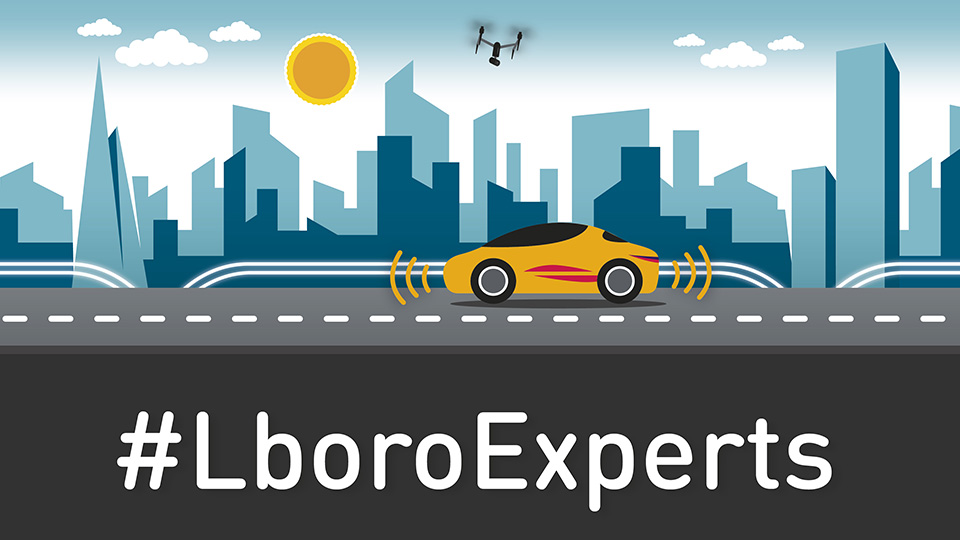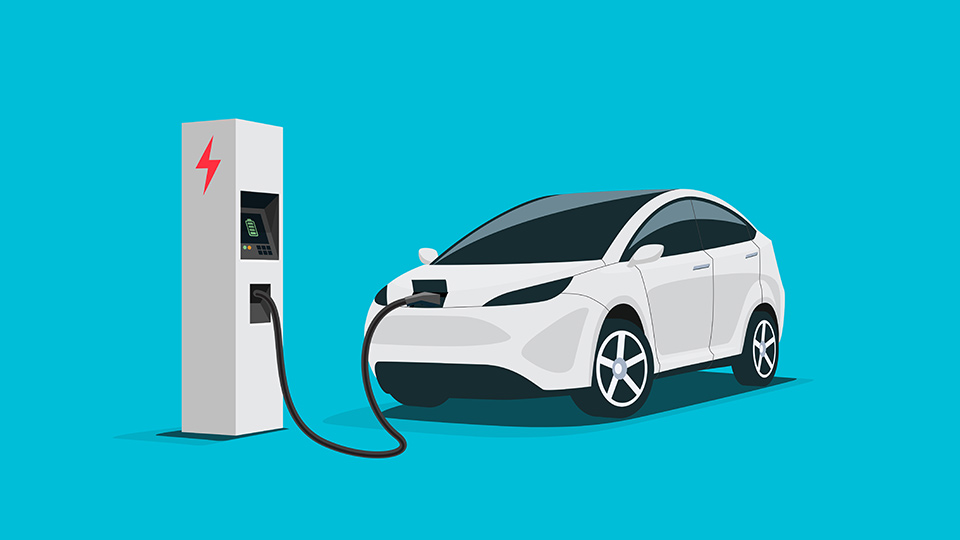14 Nov 2019
Virgin Media owner announces plans for 1,200 on-street electric vehicle chargers – and Loughborough research will determine where they go

Liberty Global, the owner of Virgin Media, has unveiled plans to help revolutionise on-street electric vehicle (EV) charging – and Loughborough academics will play a crucial role in making the vision a reality.
The telecommunications giant has announced that it aims to deploy and operate 1,200 charging sockets across the country over the next 18 months.
It will create the EV charging points by transforming existing Virgin Media street cabinets and ducts and connecting them to its digital network.
The project has been created in partnership with Innovate UK, the UK government’s research and innovation department, to help local authorities find a solution to limited on-street EV charging points and thereby encourage more people to use electric vehicles.
Loughborough University joins the project, titled ‘Virgin Media Park & Charge’, as part of a 19-strong consortium.
Dr Craig Morton, of the School of Architecture, Building and Civil Engineering, is leading the University’s involvement and will help Liberty Global identify the best sites to install the charging points on.
He will work with Dr Falli Palaiologou and Dr Andrew Timmis to develop a site selection tool – a type of modelling that maps out what areas would be most suitable for the installation of new EV charge points.
The team will use a variety of datasets to identify the streets that are most likely to embrace and use the charging points.
They will look at where EVs are most popular, the types of households that do not have easy access to off-street car parking, and the presence of existing charging infrastructure.
They will analyse the data to determine how environmental conditions and local context impact residents’ car selection.
This information will then be used to identify 600 streets electric vehicle charge points should be installed on.
EV points will be installed at these locations providing they pass a physical inspection as the modelling does not account for physical factors, such as tree locations, which can limit the feasibility of installing a charging point.
The streets identified by the academics will fall within the West Midlands, Oxfordshire, Liverpool, Southend on Sea, Worcestershire, Wandsworth, Croydon, Northamptonshire, Hammersmith and Fulham and Belfast.

The Loughborough academics will identify 600 streets electric vehicle charge points should be installed on.
The Loughborough academics will build and refine the model throughout the project as the charging points will be installed in batches.
They will observe how the charge points are received and used after they are installed and make use of this data to further refine the site selection tool.
Loughborough University is the only academic partner on the project consortium. Other partners include Vattenfall and SMS plc and specialist technology partners Cenex, Ginger Town, Fully Charged, Connected Kerb, DETA.
The local authorities of the areas where the charging points are to be installed are also part of the consortium team.
Of the University’s involvement, Dr Morton said: “The opportunity to play a crucial role in the next wave of public EV chargepoint development is very rewarding due to the importance of this infrastructure in facilitating a transition to a low carbon transport future.
“Our team will support the partners in the consortium regarding how best to invest in their EV infrastructures by answering the simple but important question of which areas would benefit the most from the installation of charge points.”
Liberty Global says the rollout of Electric Vehicle Charging Stations using Virgin Media’s connectivity will “build a fully scalable electric vehicle charging network, helping the UK government move closer to its goal of reducing net carbon emissions to zero by 2050”.
Jason Simpson, Vice President Global Energy and Utilities for Liberty Global, said: “Leveraging street cabinets allows Liberty Global to look beyond traditional uses of telecom infrastructure and make a positive impact on the environment and in communities throughout the UK.
“By bringing more electric vehicle chargers and associated connectivity to Britain’s streets, we are making a significant contribution to Innovate UK’s ambition to encourage more people to buy electric cars.
“We’re excited to be working with a wide array of partners who each bring their own areas of expertise to this exciting and innovative project.”















